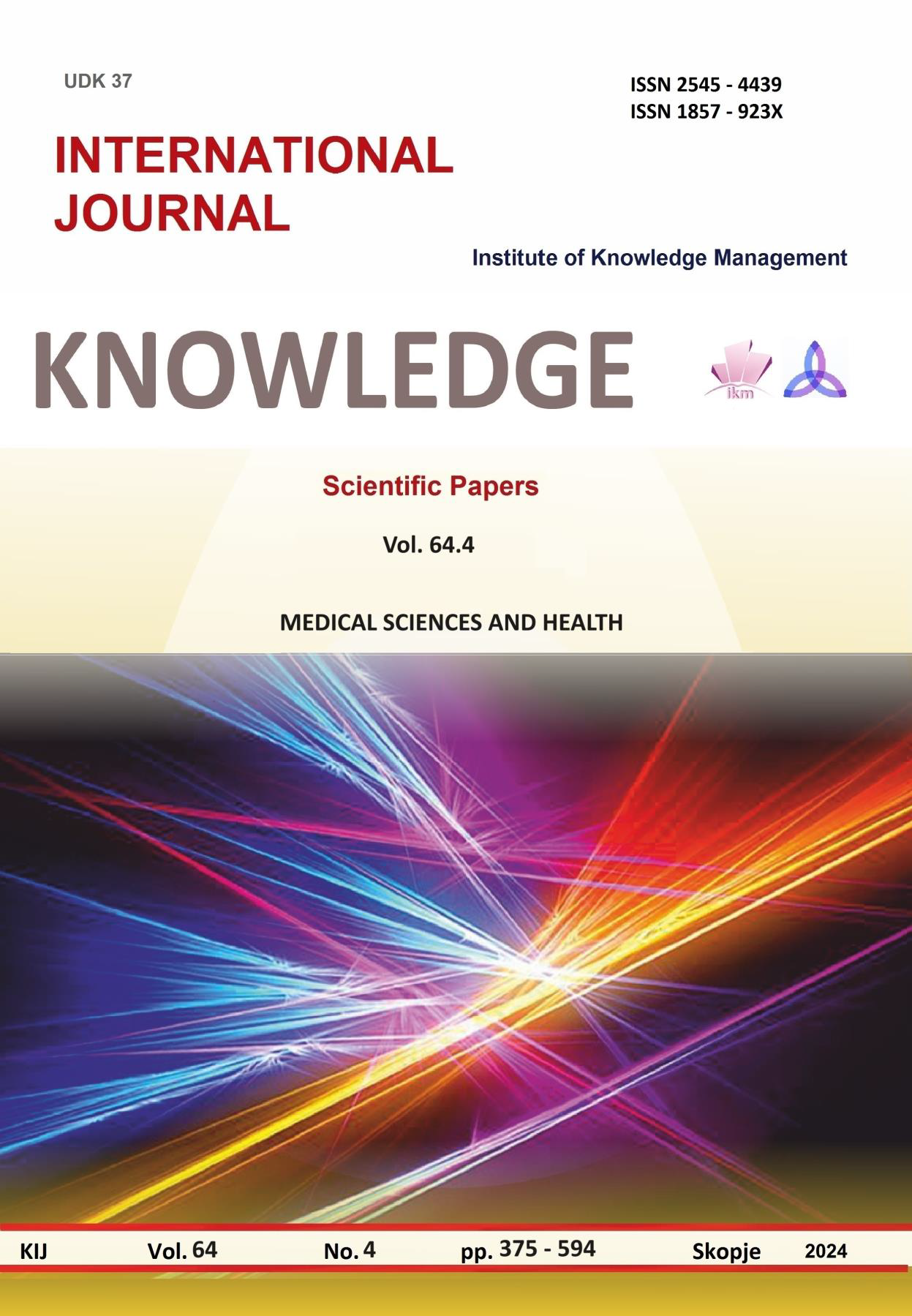ПСИХО-СОЦИАЛНИ ПОСЛЕДИЦИ ОТ СЪРДЕЧНО СЪДОВИТЕ ЗАБОЛЯВАНИЯ ПРИ ЛИЦА В ТРУДОСПОСОБНА ВЪЗРАСТ
PSYCHO-SOCIAL CONSEQUENCES OF CARDIOVASCULAR DISEASES IN PERSONS OF WORKING AGE
Author(s): Veronika SpasovaSubject(s): Social Sciences, Psychology, Social psychology and group interaction, Health and medicine and law
Published by: Scientific Institute of Management and Knowledge
Keywords: cardiovascular diseases;consequences;working age
Summary/Abstract: Cardiovascular diseases are leading socially significant diseases, both in the developed countries of the world and in Bulgaria. The modern way of life, combined with a number of other risk factors, lead to the emergence of symptoms of these diseases at an increasingly younger age, affect people of working age and are the cause of the appearance of adverse consequences of a physiological, psychological and social nature, and not infrequently and to premature death. Objective: To study the psychological and social consequences of cardiovascular disease in working-age individuals. Materials and methods: 1. Theoretical analysis. 2. Sociological method — survey with a semi-standardized survey card, which includes 15 questions in the Special part and 5 questions in the Passport part. 3. The statistical method alternative analysis was used to objectify the results. The study was conducted in the period March - April 2024 among 34 persons of working age, diagnosed with Cardiovascular Diseases, hospitalized in the Cardiology Department of Multi-Purpose Hospital for Active Healthcare “Avis Medica” - Pleven town. In terms of physiological consequences of the disease, the results indicate that respondents “often” experience easy fatigue (49.98%) and heart palpitations (38.22%). Among the symptoms/consequences that are present “sometimes” leading are shortness of breath and weight change (55.86%), also the presence of chest pain and dizziness (44, 10%), as well as the need to observe a dietary regime (38 .22%). The answers “almost always” and “always”do not have a significant weight, which can be explained by the fact that they are symptoms with a recent history, the respondents are at an age when they do not have severe consequences of the disease and decompensated conditions. All respondents experienced psychological consequences of the disease - (97.0b%) indicated that they were afraid of worsening the condition, half (49.98%) of the respondents had negative feelings such as bad mood, anxiety, stress, despair, 47.04% had no desire for intimacy/sex due to the condition and/or ongoing drug therapy; fear for life was felt 'sometimes' by 35.28% of the respondents. Almost half of the respondents report that they fell into apathy and depression, half had angry outbursts and emotional outbursts, which they attributed to the disease and its consequences. Regarding the social consequences for CVD patients, the results show that the disease had the greatest impact on their income - 79.38% and in 32.35% it affected their work activity. The consequences are insignificant in the activities related to maintaining personal hygiene, that of the home, performing household activities, making social contacts. Only 1/3 reported a change in leisure activities. The consequences of cardiovascular diseases such as psycho-emotional stress, impaired physical and social activity, the allocation of significant funds from the family budget for the purchase of medicines and healthy nutrition, temporary incapacity and hospitalizations, the occurrence of permanent damage to health, put people with a diagnosis cardiovascular disease at risk of social insecurity and poverty and lead to a subjective feeling of low quality of life.
Journal: Knowledge - International Journal
- Issue Year: 64/2024
- Issue No: 4
- Page Range: 435-440
- Page Count: 6
- Language: Bulgarian

